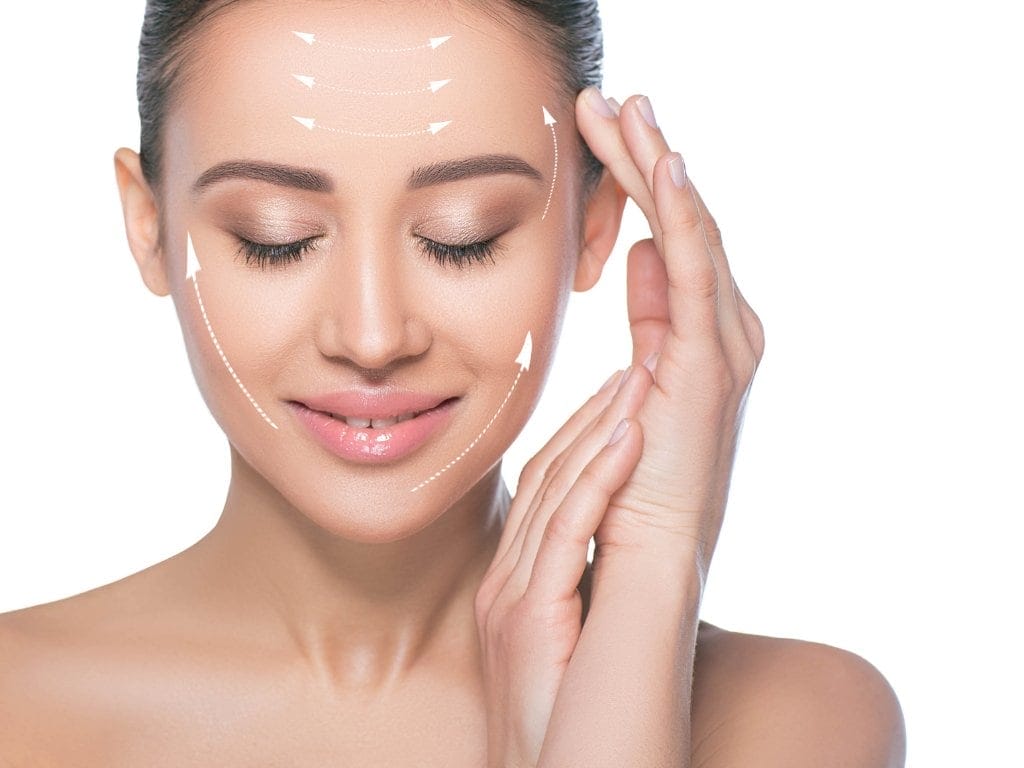Your Ultimate Guide to Skin Exfoliation
Think of exfoliation as another version of the deep-cleaning aspect of your daily skin-care routine. Your daily cleanser helps rid the skin of the makeup, oil, and surface-level dirt and grime that accumulate over the course of the day, while an exfoliator really gets in there and sloughs away dead skin cells that have accumulated over the course of the day. Exfoliating helps buff away dead skin cells and leaves skin looking smoother and more radiant. In this ultimate guide to skin exfoliation, Tropika Club will help you understand the different types of exfoliation and how to exfoliate like an expert.
Table of Contents
- No Time to Read? Here’s a Snappy Summary of This Article
- Why You Should Exfoliate Your Skin
- Which Types of Skin Exfoliators Are Available?
- How do Physical Exfoliators Work?
- How to do Chemical Exfoliators Work
- How Do You Properly Exfoliate Your Skin?
- How Often Should You Exfoliate Your Face?
- Is It Possible to Exfoliate Your Skin Too Much?
- Meanwhile, Check Out Tropika Club’s Ecosystem of Websites
No Time to Read? Here’s a Snappy Summary of This Article
- Why You Should Exfoliate Your Skin: Exfoliating helps rid your skin of dead skin cells, revealing healthier, brighter skin. It also improves the effectiveness of your skin care products and prevents clogged pores and acne.
- Which Types of Skin Exfoliators Are Available: There are two types of exfoliators: physical and chemical. Physical exfoliators use small grains, a brush, or a scalpel to scrub away dead skin cells. Chemical exfoliators use acids to dissolve dead skin cells.
- How Do You Properly Exfoliate Your Skin: The best way to exfoliate your skin depends on your skin type, sensitivity, and preference. You should always cleanse your skin before exfoliating and moisturize after. You should also avoid over-exfoliating or using harsh products that can damage your skin barrier.
- How Often Should You Exfoliate Your Face: The frequency of exfoliation depends on your skin type and the type of exfoliator you use. Generally, you should exfoliate once or twice a week for normal to dry skin, and two to three times a week for oily or combination skin.
Why You Should Exfoliate Your Skin
Your skin is consistently repairing and replacing itself. Due to this, you’ll be left with layers upon layers of dead skin everywhere on your body. Exfoliating helps rid your body of those leftover dead skin cells, revealing healthier, brighter skin immediately after.
While brighter skin is certainly a perk, exfoliation can actually help improve the health of your skin yet. If your skin is riddled with dead cells, your skin care products might not be ready to penetrate deep into the skin and do their work. By removing the topmost layer of skin, you’re making it easier for your topical skin treatments to sink deep below the surface where they may make a difference.
If you have got acne-prone skin, exfoliation can help filter clogged pores that usually result in breakouts. It can even help fade acne scars faster by accelerating somatic cell turnover and stimulating collagen production.

Which Types of Skin Exfoliators Are Available?
There are two sorts of exfoliators: physical exfoliators and chemical exfoliators. They both get the job done, but they are going about it in different, unique ways.
How do Physical Exfoliators Work?
Physical exfoliants show you quick results as they’re literally using force to get rid of dead skin cells. They also generally have less chemical interactions than other skincare products additionally promoting blood circulation through the face. Pretty straightforward exfoliation with the utilization of small grains, a brush, or a scalpel. But not all physical exfoliants are created equally. within the case of your typical drugstore scrub, examine the ingredients list to make sure that none of the exfoliating agents are large, as this may over-exfoliate and damage your dermis.
How to do Chemical Exfoliators Work
Chemical exfoliators, on the opposite hand, work by dissolving the dead skin cells with acid, Farris says. There are two main acids to appear within the chemical exfoliator category: alpha hydroxy acids (AHAs) and beta hydroxy acids (BHAs). Chemical exfoliants remove dead skin cells with the employment of—are you ready?—chemicals to assist in cell turnover. Peels are chemical exfoliants and don’t seem to be only great for smoothing but also for brightening. The glow effect!
Chemical exfoliants can sometimes be harsh on the skin and if you’re already using acne-fighting products with ingredients like salicylic acid or benzoyl peroxide in them, applying more chemicals to your face may wreak havoc on your skin. If you decide to use a chemical exfoliant, be sure to read the ingredients to ensure they won’t adversely react to the products you are already using on your face.
Lactic acid is another good starting peel because it’s considered lightweight and gentle. It smooths skin, provides a glow, helps with minor wrinkles, and is better than glycolic acid in treating hyperpigmentation and general skin discolorations. In addition, it’s more hydrating. Alpha hydroxy acids (AHAs) AHAs are a group of water-soluble acids typically derived from sugary fruits. Popular AHAs include glycolic acid, which comes from sugar cane lactic acid, which is found in milk and pickled vegetables citric acid, found in citrus fruits tartaric acid, from grapes malic acid, found in apples These acids help peel away the surface of your skin so that new, more evenly pigmented skin cells may generate and take their place.

How Do You Properly Exfoliate Your Skin?
When employing a physical exfoliant, start by washing your face along with your regular facial cleanser. Then, take a quarter-size amount of your face scrub and gently and carefully apply it onto your face in circular motions, avoiding the attention area. Gently massage the scrub onto the skin for as long as your specific product recommends, usually from 30 seconds to a full minute. Then, rinse with warm water and gently pat your skin with a clean towel. Follow together with your hydrating mask, serum, or cream.
When employing a chemical exfoliant, wash your face together with your regular cleanser. If your chemical exfoliant comes in an exceedingly pre-moistened cloth or pad, apply this everywhere on your entire face, neck, décolleté, and even the tops of your hands. Allow some minutes for a chemical exfoliant to be completely absorbed into the skin before moving on to the subsequent step in your regimen, which can be a treatment serum or cream. Do the identical for exfoliants in varieties of gels or serums. Some styles of chemical exfoliants, often called “peels,” are used like a mask application and are required to be rinsed off after some minutes. Always check your product label to create sure you’re using it correctly.
How Often Should You Exfoliate Your Face?
As a general rule, less is more. The goal is NOT to turn beet red or to feel a sting it’s to gently help along your body’s natural exfoliation process so that your face glows. For sensitive skin: You should be extra gentle and exfoliate with a warm, wet washcloth or a mild chemical exfoliant with lower active ingredient percentages once or twice a week, max. Scrubs with beady parts usually just irritate this skin type and should be skipped.
Remember that exfoliating your face should only be done about one to 3 times per week, as exfoliating too often or too hard may cause micro-tears on your skin’s surface and strip your skin’s protective layer. If you have got inflammatory acne, rosacea, or hypersensitive skin, ask your dermatologist to work out what exfoliant to use and the way often to use it. Do not ever exfoliate on a daily basis as this may damage your skin.
Is It Possible to Exfoliate Your Skin Too Much?
The [tell-tale] signals that you’re using your exfoliator an excessive amount include excessive dryness, irritation, redness, and sensitivity. If you see any of those signs occurring on your face or skin, it is vital to stop using the exfoliant immediately.
If you’re already a victim of excessive sloughing, and you’re left red and raw, don’t worry—there’s still hope for your skin. To calm your complexion once it’s red, use products that contain green tea extract. The powerful ingredient soothes the skin and studies show it can even help prevent carcinoma. Bisabolol is another effective anti-inflammatory ingredient derived from chamomile, which is able to relieve red patches and reduce inflammation. And root extract and cucumber extract also work to assuage and calm the skin, alleviating redness.
Conclusion
Skin exfoliation is a vital step in any skincare routine. It can help you achieve a smoother, brighter, and more even complexion by removing dead skin cells, unclogging pores, and enhancing the absorption of other skincare products. However, not all exfoliators are created equal. Depending on your skin type and concerns, you may need to choose between chemical or physical exfoliators or use a combination of both. You also need to be careful not to over-exfoliate or use harsh ingredients that can damage your skin barrier and cause irritation.
To help you find the best exfoliator for your skin, we have compiled a list of some of the best products on the market, as well as some tips on how to use them safely and effectively. Whether you have dry, oily, sensitive, or combination skin, there is an exfoliator out there that can suit your needs and preferences. Remember to always follow up with a moisturizer and sunscreen after exfoliating to protect your skin from dehydration and sun damage.
We hope you enjoyed reading our ultimate guide to skin exfoliation and learned something new today. If you have any questions or feedback, please leave a comment below. We would love to hear from you. And don’t forget to share this article with your friends and family who might benefit from it.

Frequently Asked Questions (FAQ)
Q: What is skin exfoliation?
A: Skin exfoliation is the process of removing dead skin cells from the surface of your skin. This can be done using a variety of methods, including scrubs, chemical peels, and microdermabrasion.
Q: Why is skin exfoliation important?
A: Exfoliating your skin can help to remove dead skin cells and unclog pores, which can help to prevent acne and other skin problems. It can also help to improve the texture and appearance of your skin.
Q: How often should I exfoliate my skin?
A: The frequency of exfoliation depends on your skin type and the method you are using. Generally, it is recommended that you exfoliate once or twice a week.
Q: What are some common types of exfoliants?
A: Some common types of exfoliants include physical scrubs (such as sugar or salt scrubs), chemical exfoliants (such as alpha-hydroxy acids or beta-hydroxy acids), and enzyme exfoliants (such as papaya or pineapple).
Q: Can I make my own exfoliant at home?
A: Yes! There are many DIY exfoliant recipes that you can make at home using ingredients like sugar, honey, and coffee grounds.
Meanwhile, Check Out Tropika Club’s Ecosystem of Websites

Tropika Club Magazine – Tropika Club Magazine is a Singapore-based publication that features articles on a wide range of topics with a focus on local businesses and content for the region. The magazine emphasizes supporting local businesses through its #SupportLocal initiative, which includes coverage of everything from neighborhood hawker stalls to aesthetic clinics in town. In addition to highlighting local businesses, Tropika Club Magazine also covers a variety of local content, including beauty, lifestyle, places, eats, and what’s on in Singapore and the Asia Pacific region.
Tropika Club Deals – Tropika Club Deals is a leading online deals and voucher shopping site in Singapore, offering amazing discounts on beauty, wellness, and fitness products and services. It’s the perfect platform for customers who want to discover the best deals without having to commit to a specific appointment date and time. These deals are available at major beauty stores, facial salons, hair salons, and other brands in Singapore, with no minimum spend required. Choose from guaranteed discounted deals in the categories of hairstyling, hair removal, facial & aesthetics, body slimming, brows & lashes, nails & makeup, massage & spa or fitness & wellness. Tropika Club Deals is also ideal for customers who want to buy vouchers as gifts or to use for the future. So whether you’re looking to save money on your next haircut or want to treat yourself to a relaxing massage, Tropika Club Deals has got you covered with the best voucher and coupon deals in Singapore!




